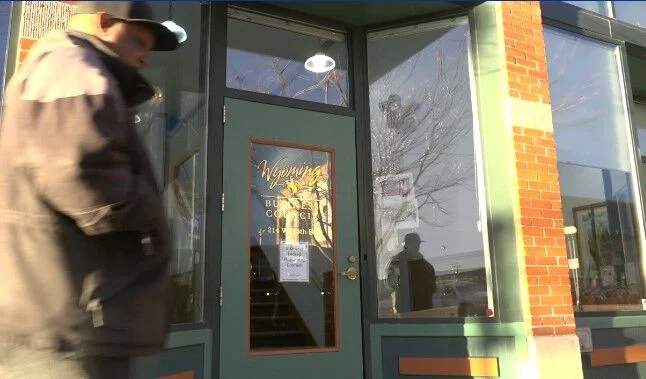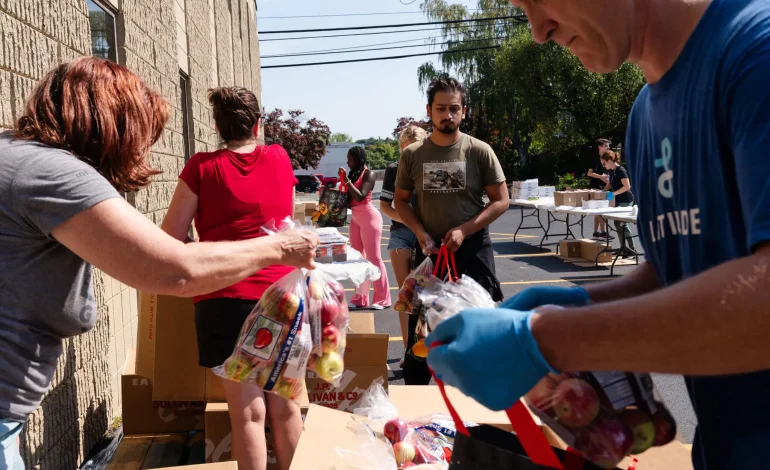Food banks across the United States are facing significant challenges following the suspension of hundreds of shipments of federally funded food aid, the New York Times reports.
The halt, which affects deliveries of produce, poultry, and other essential items, has left organizations scrambling to cover an estimated $500 million budget shortfall.
The Biden administration had designated these food supplies for distribution during the 2025 fiscal year under the Emergency Food Assistance Program (TEFAP), a US Department of Agriculture (USDA) initiative backed by the Commodity Credit Corporation (CCC). However, in recent weeks, many food banks learned that their expected shipments for the spring had been put on hold.
Vince Hall, chief of government relations for Feeding America—a national network of over 60,000 food pantries—said USDA officials informed him that the department is reviewing food aid programs funded through the CCC However, it remains unclear how long this review will take or whether the suspended aid will be reinstated.
The freeze comes amid broader discussions about federal food assistance programs. Earlier this month, the Agriculture Department suspended two other food distribution programs serving food banks and schools. Meanwhile, lawmakers are considering cuts to the Supplemental Nutrition Assistance Program (SNAP), commonly known as food stamps, which supported approximately 42 million Americans in the 2023 fiscal year.
Food bank leaders warn that these reductions could increase demand for food assistance at a time when many organizations are already operating under financial strain.
“This is perhaps the first time in the history of food banking that we’ve seen record-low unemployment and record-high demand at food banks,” Hall said. “Any increase in demand could result in a food crisis.”
The effects of the funding freeze vary by state, but some food banks are already facing significant shortfalls.
- Oregon: The Oregon Food Bank anticipates losing 30 truckloads of food due to the suspension. Demand for food assistance in the state has risen by 31% compared to the previous year.
- Maryland: Food banks expect to lose nearly $1.3 million in shipments, though officials believe they can manage the immediate impact.
- Virginia: Some food banks are missing shipments that account for a third of their expected supply from TEFAP. Rising food prices and increased demand have driven Virginia food banks to spend five times more on food than they did in 2019.
- West Virginia: Facing Hunger Food Bank reports the loss of thousands of cases of cheese, canned chicken, and fresh milk.
- New Mexico: Food banks anticipate missing 24 truckloads of essential food items, including dairy products and meats. The impact is particularly concerning in rural areas, where food insecurity is already high.
Food banks are exploring alternative funding sources and donations to bridge the gap. However, many worry that without immediate solutions, they may have to cut back on food distribution, leaving many people without crucial assistance.
“Essentially, we had anticipated receiving many truckloads of USDA food over the next few months,” said Cathy Kanefsky, president and CEO of the Food Bank of Delaware. “Now it’s uncertain whether we will receive this food, meaning fewer meals for our neighbors. The effect could be devastating.”










The latest news in your social feeds
Subscribe to our social media platforms to stay tuned